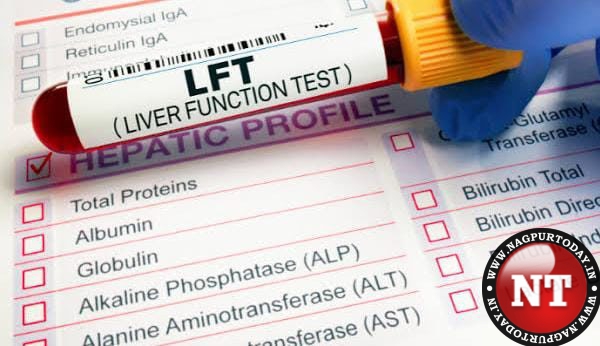Liver function test is a blood examination that measures substances such as enzymes and proteins, produced by the liver. This test helps determine if your liver is functioning accurately.

The liver is the largest solid organ in our body, located beneath the rib cage. It helps to remove toxins from the body’s blood supply, maintains your blood sugar levels, regulates blood clotting, and is responsible for hundreds of other crucial functions.
Liver function test, sometimes called liver panel, involves blood tests that check your enzymes, proteins, and other compounds produced by the liver. These tests help examine your liver’s general well-being. A blood sample is used to examine the substances simultaneously. The results of this test help healthcare professionals check your liver’s overall health.
Why Are Liver Tests Important?
Your doctor may recommend a liver test if he/she suspects you have hepatitis or liver diseases. If you already have a liver disorder, then the test helps monitor the treatment. Other reasons to do this test are:
- Early Detection: Liver test is important because it can find liver problems early. Problems like hepatitis or fatty liver disease can be detected. Finding these issues early helps doctors treat them on time, preventing them from worsening and causing more problems.
- Monitoring Medication: Some medicines can affect how your liver works. Doctors use liver tests to check this. These tests ensure the medicines are safe and can be adjusted if needed, keeping patients safe.
- Assessing Liver Health: People who drink alcohol, are overweight, have diabetes, or have family members with liver issues should get regular liver tests. These tests help catch problems early.
What Liver Function Tests Check?
These tests can tell if your liver is functioning accurately:
- Liver Enzyme Test: This test checks the levels of enzymes present in your liver, including alkaline phosphatase (ALP), alanine transaminase (ALT), aspartate aminotransferase (AST), and gamma-glutamyl transferase (GGT). These enzymes are mostly elevated when you have a liver injury.
- Total Protein Test: This test measures the protein level in your bloodstream. Your liver makes protein, and low levels may indicate your liver isn’t working properly.
- Bilirubin Test: Bilirubin is the waste product your liver deposits in bile. If your levels are high, then your liver cannot process bilirubin into bile or your bile ducts are blocked.
- LDH Test: Lactate dehydrogenase is an enzyme involved in the body’s metabolic processes. This test is used to identify tissue damage.
- Prothrombin Time Test: This measures the time your blood takes to clot through proteins that your liver produces.
These tests are all part of routine blood and liver profile tests.
How Do the Tests Work?
A blood sample technician will draw a small sample of blood from a vein in your arm. The collected sample will be sent to a lab for analysis. Lab professionals will look for substances in your blood that are abnormally high or low. They will compare the enzymes or proteins to each other. If the levels are abnormal, then your results will help your doctor interpret and diagnose the condition.
What Information Will You Get After the Test is Done?
The results of the test will tell your healthcare provider:
- Whether your liver is inflamed.
- If the inflammation is due to alcohol.
- Whether your condition is in the liver or the bile duct.
- If your liver is impaired and how significantly.
- If your bile flow is blocked.
- Whether medications are affecting your liver.
Understanding Liver Test Results
You need to know the normal levels to understand liver function test results. If the levels are not in the normal range, then it could mean there’s a problem, and more tests may be needed. It’s important to talk to a doctor to get the right explanation for your results. They can give you personalised advice based on your health and medical history.
Normal ranges:
| Liver Function Test | Normal Range |
| Alanine Transaminase (ALT) | 0 to 45 IU/L |
| Aspartate Transaminase (AST) | 0 to 35 IU/L |
| Alkaline Phosphatase (ALP) | 30 to 120 IU/L |
| Gamma-Glutamyl Transferase (GGT) | 0 to 30 IU/L |
| Bilirubin | 2 to 17 micromoles/L |
| Prothrombin Time (PT) | 10.9 to 12.5 seconds |
| Albumin | 40 to 60 g/L |
| Total Proteins | 3 to 8.0 g/dL
|
In conclusion, liver function test is an essential blood test that tells if your liver is functioning as it should. A doctor recommends this test if he/she suspects liver issues. You may also be prescribed this test if you have symptoms like pale stool colour, jaundice, dark urine colour, itchy skin, swelling legs, and nausea. The test may not provide a complete diagnosis, but it will guide your doctor toward the treatment plan.
References: https://medlineplus.gov/lab-tests/liver-function-tests/
https://my.clevelandclinic.org/health/diagnostics/17662-liver-function-te














